Whoever decided this needed to be shipped in its current form shouldn't have a job anymore.
Back in October of this year, Red Dead Redemption 2 was released to the world. Highly anticipated doesn't adequately describe how excited millions of people were to play this game. Every aspect of this epic Western had been hyped to death, such that it seemed impossible the game would live up to the anticipation and excitement. The size and scale of the open-world alone made me want to play, and weird details like horse balls actually shrinking when it was cold let me know this was going to be a ridiculous adventure across my friend groups for months.
I picked up a physical copy of the game on Xbox One at Best Buy on launch day, sat down on my couch, and got ready to kill a weekend in the wild west. Even though I had physically inserted a disc into my Project Scorpio Edition Xbox One X, the install time for the game was still 86 minutes. Twenty minutes before the game finished installing, a friend from out of town messaged me with a surprise visit, and I went out for drinks with her instead. Had I been in the game, I wouldn't have gotten that message for hours and likely never would have gone out. The rest of my weekend got busy, and I actually never got around to starting Red Dead Redemption 2 on my system as a result.
Last week my Stadia Founders Edition kit showed up, and when I saw Red Dead Redemption 2 on the list of launch day games I decided to play it, remembering I still hadn't yet. The total time from pressing Buy on my phone to seeing the start screen was 19.4 seconds. I played for seven straight hours and loved every minute of it.
At its core, that's what Stadia says it is all about. It's not here to offer the highest quality gaming experience, with the greatest resolution and the most incredible textures. From the moment Google took to the stage at GDC in the Spring of 2019, the goal has been clear. Stadia promises a frictionless gaming experience, the end of install times, region restrictions, software updates, and maintenance, the kind of thing which wrecks game releases on the PC occasionally and slows down the overall console gaming experience. You just pick up the controller, sit down, and play whether you're in your living room or out and about. No bullshit, just video games.
After a week with Stadia, I can see a path to that promise. But at the moment, it's nowhere close.
Gaming for everyone?
Google Stadia Premiere Edition
No console, no maintenance, just video games.
Bottom line: There's a lot to like about Google Stadia, but the fact it was released as an unfinished product is unacceptable. I can't recommend this for most people, at least not yet.
The Good
- Stadia Controller is outstanding
- Launching Stadia feels like magic
- Gameplay is plenty responsive on a good network
- Decent launch titles
The Bad
- Software is insanely incomplete
- Controller doesn't do Bluetooth yet?
- Everything feels like a beta still
- Most Stadia features don't exist yet
About this review
I purchased the Stadia Founders Edition Kit about 12 seconds after seeing the launch presentation and did not receive a review unit from Google for this review. At the time of this writing, I've logged 23 hours of gameplay on Stadia across the included Chromecast Ultra and a Google Pixel 4.
Google Stadia: Into the future
While I bought a Founder's Kit from Google, I didn't actually need it to start enjoying Stadia. There's no requirement for me to use the specially branded controller to do anything, in fact, there are dozens of different controllers supported. And since I had already been testing Microsoft's Project xCloud, which streams the Xbox experience onto your phone in not dissimilar fashion from Stadia, I already had a set up I was happy with. And when I had my Xbox One controller with my Pixel 4 in the connected cradle, it worked exactly as I expect it to and I was able to enjoy playing all around my house.
Stadia cuts through all of the work, and does it wherever I want to play. And it's fun. That's a big deal.
But the Stadia Controller itself allows you to do more than just play on your phone. The Founder's Edition kit comes with a Chromecast Ultra, allowing you to play on your television as though there were a console connected to it. And when you have Stadia set up, you can just pick up the controller and start playing without ever touching your phone. There's a Konami-style connection code you enter to get started after firing up the remote launches the Stadia service on your television, and feels like you're booting up a console. Only, you're not. There's no box under your television. And the process of going from starting the controller to launching a game takes a grand total of 45 seconds on average. Comparing the Destiny 2 launch on my PS4 to the Destiny 2 launch on Stadia revealed a two-minute difference total, and that's assuming there wasn't a software update on the PS4 required.
A kind of fascinating detail about the Stadia Controller, when playing a game on the Chromecast Ultra it's never actually connected to the little hockey puck behind your television. Instead, it's connected to your Wi-Fi directly and sends its commands directly to the Stadia servers. The input you send to Stadia and the output you receive from Stadia aren't from the same device, which is a weird nerdy thing I don't think many people will ever care about but I found clever.
Another thing about the Stadia Controller—it's my new favorite. The triggers feel amazing and are angled in a way that makes rolling up to the bumpers a lot more enjoyable than the Xbox controller. The joysticks have the perfect amount of resistance for me, and the button spacing is super comfortable. It's the right weight for me, the battery lasts quite a while, and the variance of vibration is outstanding. The range from shallow or simple buzzing to deep and impactful movements inside the controller is unlike any other controller I've ever used. And while there aren't a ton of color options available at launch, I really dig the Wasabi option.
Stadia's launch lineup isn't massive, but each of the 22 options feels like something I'm playing on my Xbox or PS4. I can't overstate how impressive that is. If you have a Pixel 3 or 4 and a controller, you need to spend zero extra dollars to have a console-quality experience on your phone. If you have a laptop with Chrome, you have Stadia. A Chromecast Ultra is $70 if you don't already have one, and if that's too much money for you someone has already figured out how to get Stadia running on a $35 Raspberry Pi 4. Even used, a standard PlayStation 4 or Xbox One will run you around $180 and both require a yearly subscription to access the multiplayer features already included in Stadia. In fact, without that $60/year subscription to Xbox Live, you really only get about 1/3 of what your console is even capable of.
On the subject of online features, Stadia offers a fairly basic set up. You can add friends and join them in a group chat with little more than a generic headset connected to your controller. The group chat audio quality and latency are on par with what you get on Xbox or PS4, and allow for quickly jumping into games like Destiny 2 and playing together. That audio is Stadia to Stadia only right now, which could eventually become limiting. And with the Stadia Controller, you can also quickly grab screenshots from the games you're playing and instantly have them on your phone through the Stadia app for rapid social sharing. You can't yet share those photos through the Stadia app yet, but if you want to rub it into your IRL friends when you have scored the winning kill in an Iron Banner you can with ease.
Overall, the things Stadia does well right now it does really well. Being able to pick up a controller and just game is something you used to be able to do with consoles. In fact, that was the whole sales pitch of the original PlayStation, that it didn't require any of the work you had to go through with the PC. Don't get me wrong, I think consoles growing to allow up software updates and more features has been a net positive in the evolution of the gaming market, but it's worth highlighting the only console which comes close to living up to that original promise of "just playing" is the Nintendo Switch with its cartridge system. Stadia cuts through all of the work and does it wherever I want to play. And it's fun. That's a big deal.
Google Stadia: I paid money for this?
As much as I enjoy the things that work on Stadia, that list compared to everything Google initially promised is... not great. Hoo boy, where do I even start?
Out of the box, you get a Founder's Edition Stadia Controller, a charging cable with wall plug, and a Chromecast Ultra. The USB cable in the box is USB-A on one end and USB-C on the other end, which is an odd decision when the only phones supported by Stadia right now all use USB-C to charge it just like the Stadia Controller. That means, instead of including a USB-C to USB-C cable in the box which is something Google already does with its Pixel phones Stadia makes you go look for another cable if you want to connect the controller to your phone to play.
It's difficult to escape the feeling this launch was unnecessarily rushed, and that's going to muddy this message for a long time.
Why do you need to connect your Stadia Controller to your phone with a USB-C cable, Russell? Why not just use Bluetooth to connect to your phone or Wi-Fi like you do when connected to the Chromecast Ultra? That's a really good question, reader, one which Stadia lacks anything resembling a coherent answer to aside from "because reasons". As a reminder, my Xbox controller works with no problem. The only thing I can think is Bluetooth isn't quite ready on this controller yet, so it's not enabled until a software update comes.
More: Stadia confirms you should never buy a Google product at launch
This is a weird launch decision, but fine whatever I'll use my Xbox Controller when I want to play mobile since all of my USB-C cables are three meters long and I'd prefer not to trip over them and decapitate myself in some hilariously ironic accident as I wander through my own kitchen. But in order to do that, I need to open the Stadia app and select the game I want to play before putting the phone in the controller mount. I need to do this because the Stadia app doesn't know how to rotate to Landscape view so you can use it with the controller until you've launched a game. That's right, an app that specifically encourages you to turn your phone onto its side does not have an appropriate UI for when you follow its own instructions. Surely this will be fixed in a software update eventually.
I already own a Chromecast Ultra and use it daily. But I can't use the clever Konami-style launch feature on the one I have connected to my television for Stadia right now, because only the Chromecast Ultra in the Founder's Edition box supports Stadia completely right now. Stadia will eventually work on every Chromecast Ultra, and make it so you need only bring your Stadia Controller over to your friend's house to have the entire game console follow you, but that's basically not the reality right now. In order for that to happen, you need to wait for a software update to hit your Chromecast Ultra. And since you can't force an update on these devices, your only course of action is to sit patiently and wait.
Stadia has an achievement system for all of the games in its inventory, but you can't access it yet because it's not done being built. You are actively unlocking achievements while you play right now, but there's no way to know what they are because there is no interface for telling you the unlock has happened or showing you the collection of things you have unlocked. This feature will come soon... via a software update.
Are you noticing a trend? 90% of the features for Stadia, many of which were boasted back in March of this year, don't exist yet. You can't jump into a game with someone streaming on YouTube and just start playing right where they are. You can't use Google Assistant to help you when stuck in a particular point in a game. You can't stream games in 4K at 60FPS no matter how great your internet connection is. There is no way to share a killer experience you found for other people to jump in to. There are no accessibility features. All of this is still in development, still on a road map not available to the public.
The official answer for why none of this is available yet? Stadia is living software, and will be updated at a rapid pace just like Google Chrome. By offering a constantly iterative experience, players will be able to experience Stadia improving in real-time, instead of through large batch updates like you'd see with consoles.
And on some level, that actually makes a lot of sense. Why bother batching updates for things when it's all in the cloud, just push it live when you know it works. I think, overall, there's some brilliance to that idea. And had Stadia launched as either a complete thought or for free, I could see the Chrome comparison applying and being excited about that. But it didn't, Stadia's controller doesn't even work for all of the devices you're supposed to be able to play it on without a cable that doesn't even come in the box. It's difficult to escape the feeling this launch was unnecessarily rushed, and that's going to muddy this message for a long time.
Google Stadia: Should you buy this?
As a general rule, I don't recommend things on the promise that they will be more enjoyable or somehow better in the future. As a consumer, you should never pay to be a beta tester, certainly not for one of the biggest companies on the planet. Calling Stadia incomplete is an understatement, and every single person on that team should be embarrassed and angry at what got shipped to the people who paid $130 to be first in line for this service. The users deserve better, and the team working hard on this product should hold their management accountable for deciding this was okay to ship to the people who took the risk on this unproven thing.
At the same time, the parts of Stadia you can use right now genuinely feel like the future. Consoles are not going to look anything like they do right now in a couple of years, and tech like Stadia is going to be a big part of why. The ability to see a cool game in a commercial or a live stream, press a buy button on that screen, and immediately start playing the game that caught your attention, is incredibly powerful. It's good for developers, and it's good for players. But that's not what Stadia is, at least not yet. Google may not be the company to make this the new normal, but it's coming and being able to watch it take shape is cool as hell.
If you're excited by the bleeding edge, if you're sick of console and PC maintenance, or if you live somewhere with a great internet connection, Stadia can be a revelation well worth checking out. But I wouldn't bother recommending this to most people right now. We'll see how I feel after a couple of months of this living software doing its thing in the wild.
Gaming for everyone?
Google Stadia Premiere Edition
No console, no maintenance, just video games.
Play console-quality games on your phone or television without paying for a big box, as long as you have a great internet connection and the right mobile hardware.
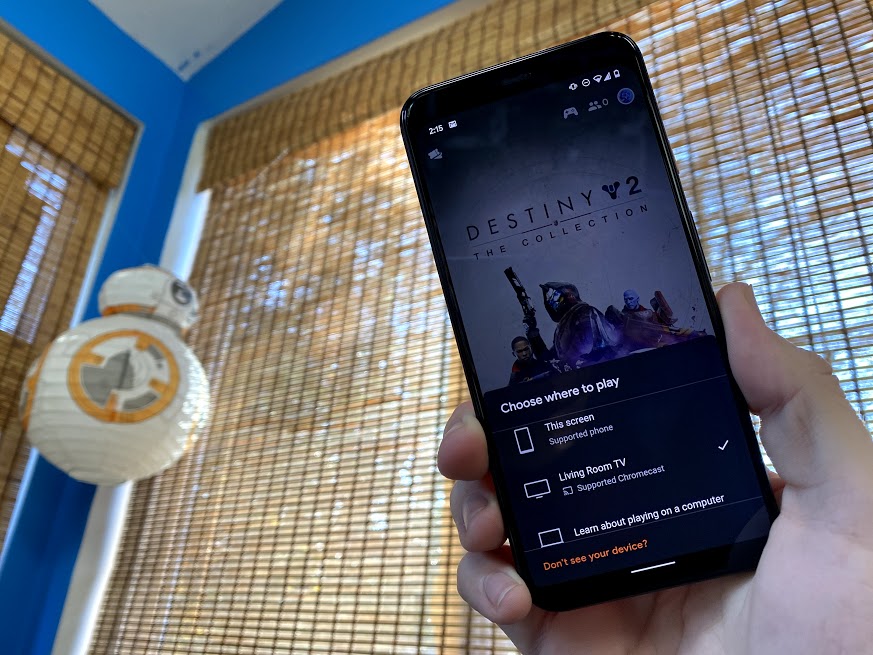
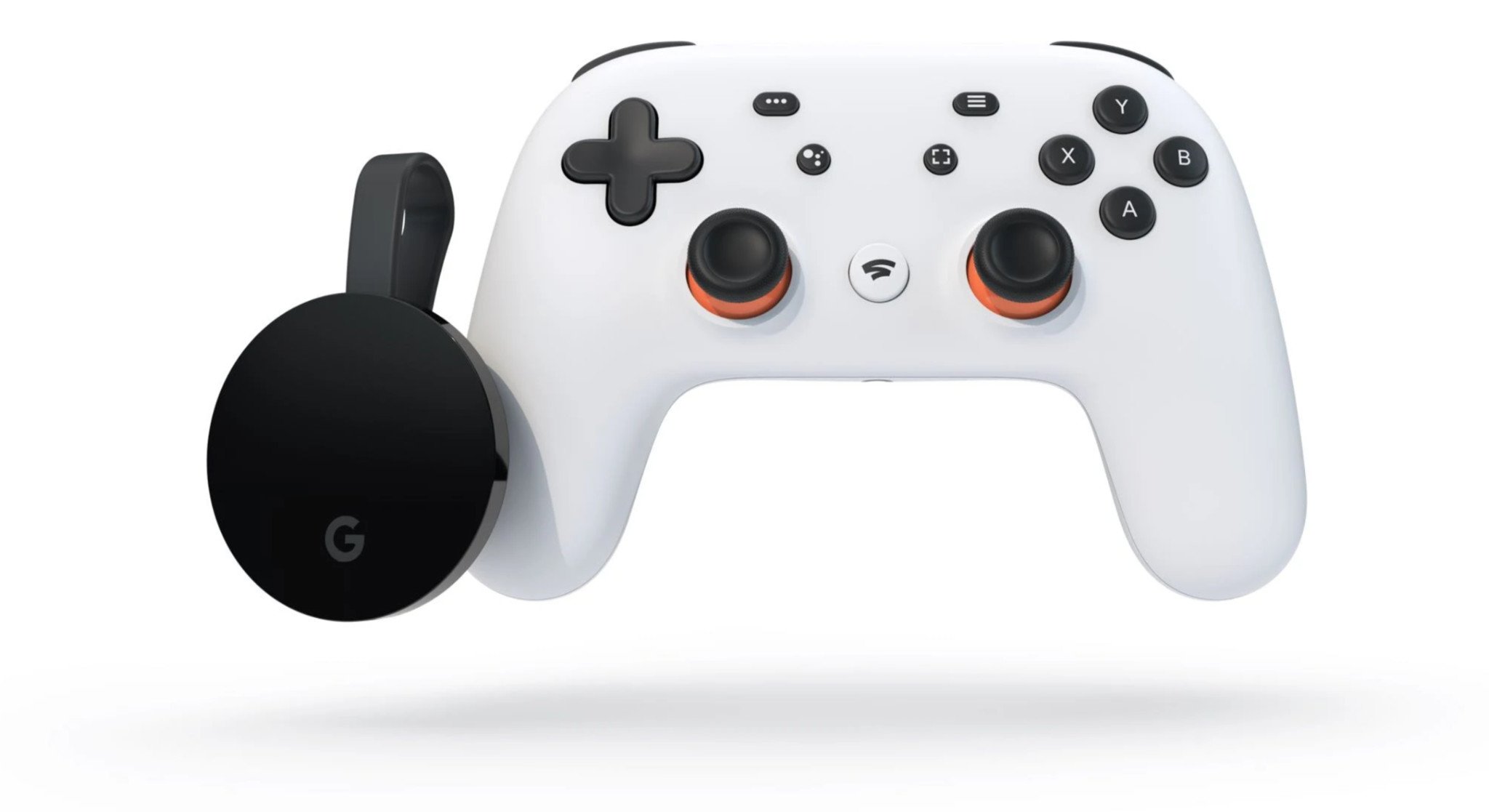
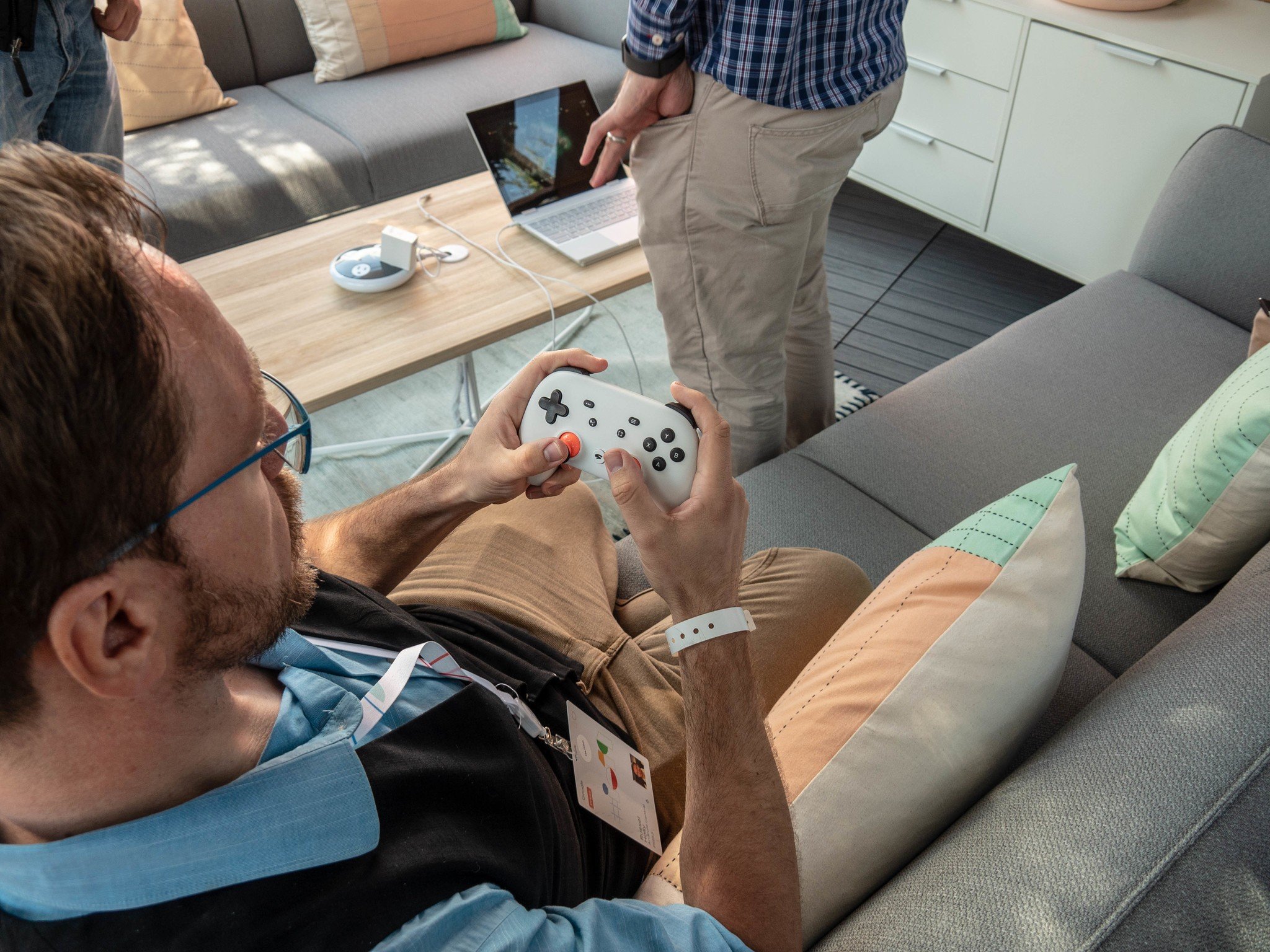
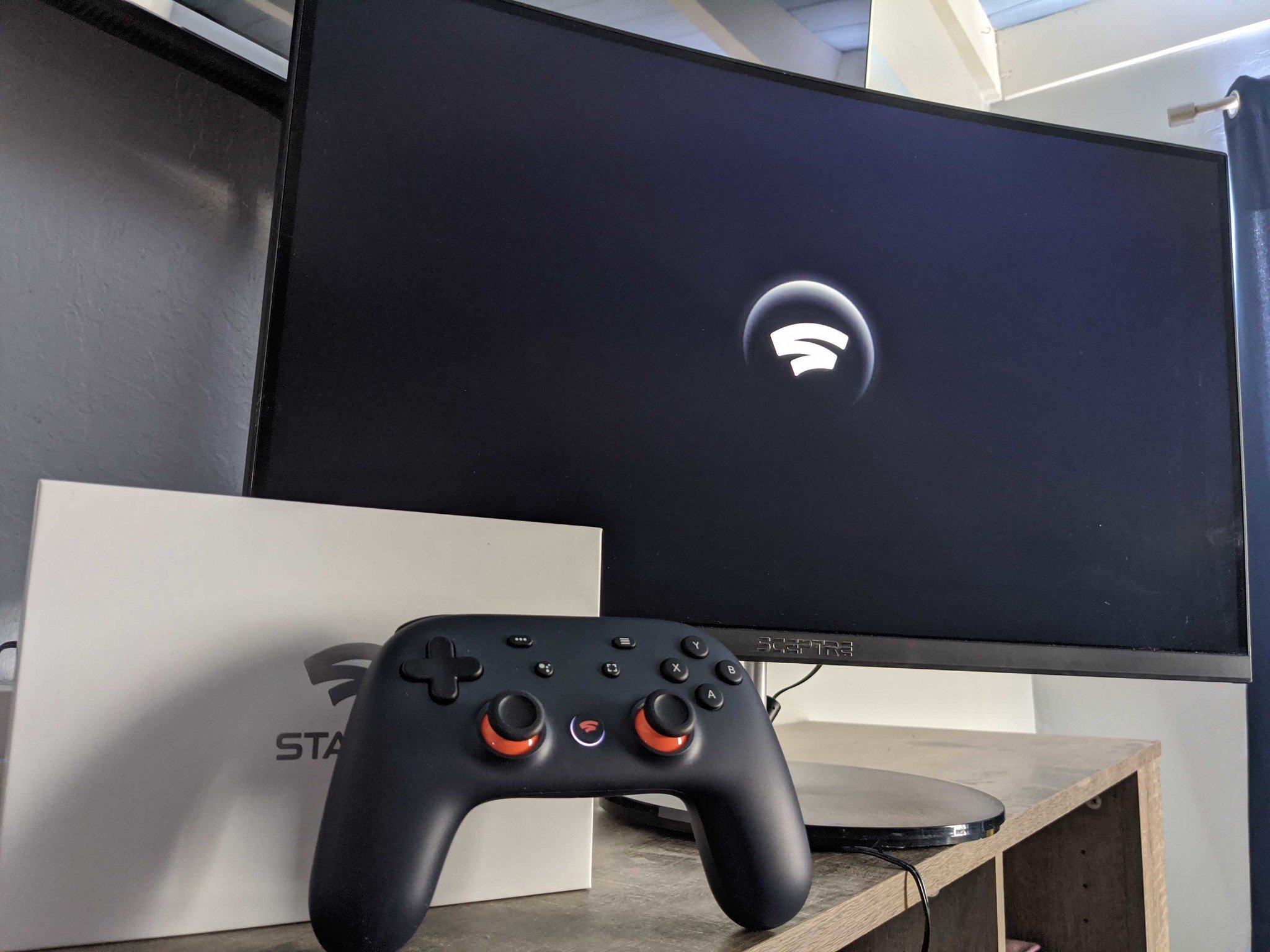
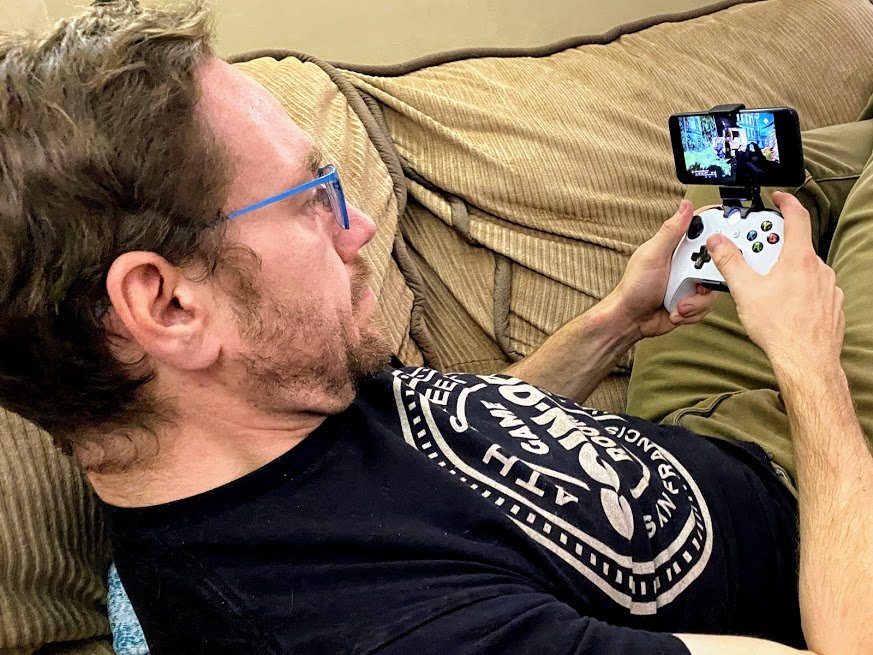
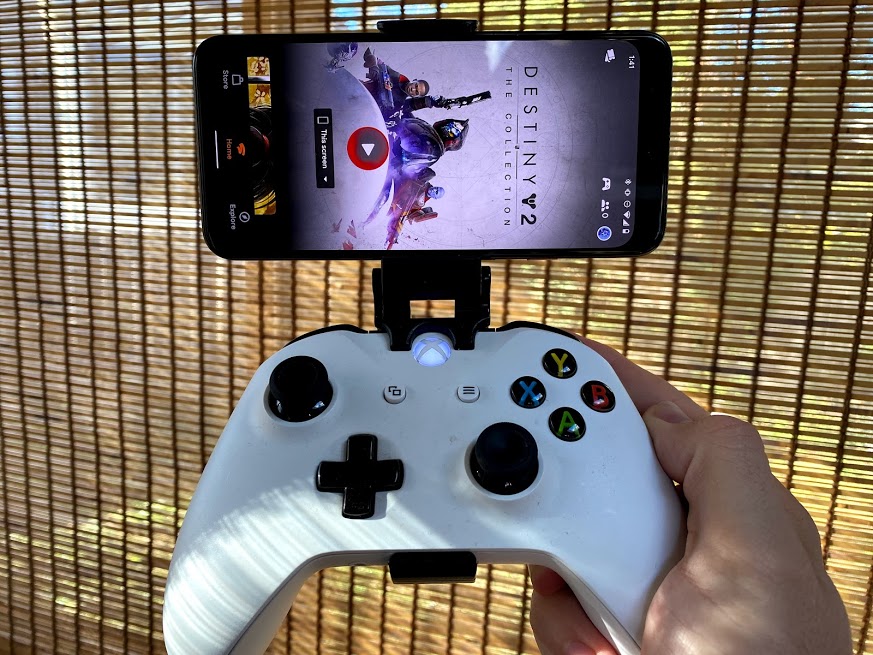
Tidak ada komentar:
Posting Komentar